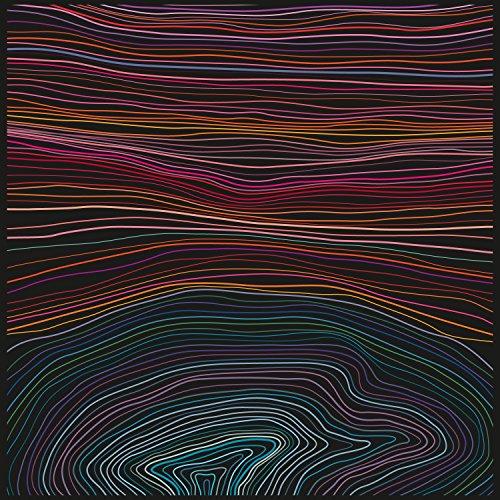
Dungen
Allas Sak
Release Date: Sep 25, 2015
Genre(s): Rock, Pop/Rock, Psychedelic
Record label: Mexican Summer
Music Critic Score
How the Music Critic Score works
Buy Allas Sak from Amazon
Album Review: Allas Sak by Dungen
Great, Based on 11 Critics
Based on rating 8/10
It’s been more than ten years since Dungen provided us with their masterpiece, 2004’s anthemic Ta Det Lungnt. Their timing helped, though: prog music was undergoing some sort of revival, and the Swedish quartet’s sound was too specific for that time. For reasons unknown to most people, Dungen’s music stood out for its very particular nature, as if it were right there between dream pop and more generic guitar-oriented music.
Based on rating 8/10
After almost 15 years of releasing gloriously expansive and tripped-out psychedelic jams, Gustav Ejstes and his band Dungen show no signs of flagging on their seventh full-length, Allas Sak. After a break of five years, the album finds them stretching their sound in new, more measured and arranged ways. Ejstes adds loads of piano (both acoustic and electric), many mellifluous flute solos, and Mellotron, all of which coat the songs in a soft-focus haze.
Based on rating 8.0/10
In 2004, when Dungen released their third and still-greatest LP, Ta Det Lungt, the Swedish quartet was just one good act amid a minor psych-rock renaissance. At the time, a number of bands were finding inspiration in progressive rock from the '60s and '70s and pushing those sounds toward fuzzier and more frantic extremes. This was also the year that Santa Cruz's Comets on Fire released their well-loved record, Blue Cathedral, and around the same time that Dead Meadow, Pearls and Brass, and Boris were putting out some of their best music.
Based on rating 7/10
Gustav Ejstes is one talented and busy guy. Hot on the heels of the recent release of the rather splendid Amason album, here he returns for the sixth album from his unclassifiable Swedish prog-tastic band Dungen. Backed by Swedish progressive rock luminaries Reine Fiske (guitar), Mattias "Tiaz" Gustavsson (bass) and Johan Holmegard (drums), Ejstes takes us on a trip which can be experienced at many levels.
Based on rating 7/10
Well before Kevin Parker began tripping us all out with his stoned odysseys, Stockholm's Dungen were standard-bearers of psych-rock revivalism. On the face of it, Smalltown Supersound appears a leftfield choice, but there's a shared aesthetic here. Like Lindstrøm and Bjørn Toske, Dungen aim to crawl in your ear and bury themselves in your brain with trancey loops and druggy sonics.There are thumping drum workouts, hazy guitars and languid bass.
Based on rating 6.5/10
At some point between Tio Bitar and 4, Gustav Ejstes and Dungen shifted the ratio of their psych-prog potion to decidedly prog. That's cool, I guess, but 2010's Skit i allt, lacked the urgency of Ta Det Lungt. Ain't no gettin' around it..
Opinion: Excellent
Dungen singer/band leader Gustav Ejstes has warned that translating his lyrics and album titles from Swedish to English probably won't get us close to his meanings, and the loose translation of "allas sak" as the ambiguous "everyone's thing" proves that. What's clear, though, is that seven albums in, the Scandinavian four-piece are still purveyors of tranquil, twisted psych-folk as gentle as a softly exhaled breath. These are widescreen, high-definition compositions, expansive in scope, inventive in form and future/60s-retro in the way of Jacco Gardner and Tame Impala, whom Dungen surely influenced.
Opinion: Excellent
Dungen — Allas Sak (Mexican Summer)Photo by Kim HiorthayTo steal a line from Tom Waits, it’s time that Gustav Ejstes loves. Or at any rate, time is certainly something worth thinking about as part of an assessment of Dungen, the Swedish multi-instrumentalist/studio rat’s combo. When Ta Det Lungt broke freakily big in 2004, its amalgam of 1960s psychedelic guitar licks, 1970s prog keyboards and AM radio hooks, and 1990s hip-hop production idea sounded determinedly retro.
Opinion: Excellent
It's now been eleven years since Dungen set the internet ablaze with Ta Det Lungt, their third, breakthrough album that left listeners and critics at a loss for categorising this fuzzy, strangely north-European strain of psychedelic rock. As it turned out the music of Dungen - the then-solo project of multi-instrumentalist Gustav Ejstes, now fully-formed group - was overwhelmingly informed by the psych lineage of his native Sweden; obscure at the time but becoming increasingly popular due to numerous reissues on labels like Subliminal Sounds. Yet whilst Dungen certainly had their reference points in the guitar heroics of Baby Grandmothers and Trad, Gras, Och Stenar, as well as the keyboard fantasias of Bo Hansson, these homegrown influences were merely a vehicle for Ejstes' explorations into songcraft.
Opinion: Excellent
The first condition for appreciating the new album from the Swedish rock band Dungen might be how you feel about the sound of the flute. There it is, lithe and sensitive in the beginning theme of “Sista Gasten,” then blown out with reverb in “Franks Kaktus,” as played by Gustav Ejstes, the band’s songwriter, soothing singer and primary force. It’s a sound, but it’s more than that, isn’t it? A quality of backdated, enlightened mellowness? Can you deal with it? And then the clean tone of the Fender Rhodes keyboard, telegraphing sensitivity; congas and strummed acoustic guitar; a piano altered to sound like a harpsichord; Reine Fiske’s overdriven electric guitar, spiraling upward in modal patterns through “En Dag Pa Sjon”; and above all, the production, with argumentative guitar buzz and clanky drums, as if this album were recorded in 1966.
Opinion: Excellent
Some days ago, a striking flute melody started spinning incessantly on a loop in the internal jukebox between my ears. Eventually, I managed to place it: it was the opening riff to “Mina damer och fasaner” from Dungen‘s 2008 album 4, a record and tune I’d not heard for months, if not years. That's precisely how the Swedish four-piece's music works.
'Allas Sak'
is available now

